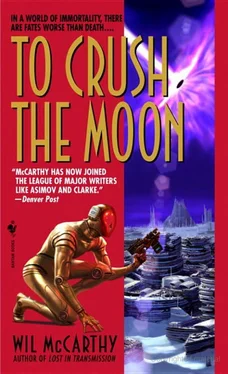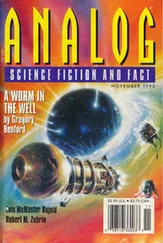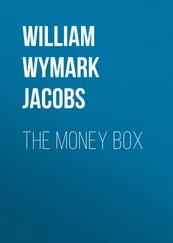Bruno had learned, through long bitter practice, never to retract or apologize for anything he said. A king simply wasn’t permitted this courtesy. But he did soften his stance, adding, “The labors of coercion are never as useful as the labors of willing gift. There are still assaults in the Queendom, every now and again, and I often suspect their perpetrators have simply never felt the touch of kindness. For if they had, then the fumbling of a cornered victim could hardly measure up. Here’s what criminals fail to understand: in a civilized world there is nothing left to steal. There are no goods or commodities they can carry away with them, nor services of value they can commandeer. Even a beggar has better odds than a thief.”
“Meaning what?” Mursk demanded, relaxing only slightly.
Bruno spread his hands. “I want your help. Not with wormhole dynamics, if that’s what you’re thinking, but with a project whose distractions threaten my delicate concentration. I need to be free to retreat here to Maplesphere at any time, so I dare not manage this project myself. And in this queendom of third-order specialists, I dare not turn it over to an unqualified leader, for my terraformers know nothing of gravity. My graviteers know nothing of DNA. My architects and planette builders are craftsmen, unacquainted with the needs of a large project, and my megaproject managers know nothing about anything. I need generalists, of a sort which Sol has simply stopped producing. On Sorrow you built the Orbital Tower, yes?”
Bruno could see Mursk contemplating some hedge around the correct answer, but in the end all he said was, “Yes. It’s one of the few things in my life I’m unequivocally proud of.”
“Aha. And you discovered the wellstone substance known as Mursk Metal?”
“Um. Yeah.”
“Well, then, you may be interested to know it’s a key component of today’s gravity lasers. You’ve also personally operated a variety of construction equipment, from bulldozers and cranes to neutronium barges and asteroid bores. True?”
Reluctantly: “True.”
“And you’ve worked as both an ecological engineer and a climatologist?”
“Well, a wildlife surveyor and a weather station monitor.”
“All right, fair enough. But on a world in the midst of terraforming operations. Indeed, you’ve lived most of your life in extreme environments. Spaceships, polar wells, desolate alien landscapes. Would you agree?”
“I… suppose.”
“And you’ve been the captain of a ship.”
Mursk balked at that one. “What? Oh, an ocean ship. Yes. But only for sixteen years.”
Bruno tapped a thumb on his desk, feeling himself grow restless again, impatient with this young man’s aggressive modesty. He needed yeses, not maybes, if they were to finish this quickly. But he pressed onward, reading his way down the profile. Fortunately the thing had been assembled by hypercomputers delving back into Queendom records and archived Barnardean transmissions, for if Mursk himself had written it, it would be all of ten words long. “Good. Now, you were present at the Sealillia riot a few days ago. Ordinarily I wouldn’t hold that against you, but given your history…”
“We were bystanders,” Mursk said, with convincing irritation. “If those kids had listened to us, it would have gone very differently. Peaceful protest, maybe. I don’t know.”
“So you tried to organize them? Pacify them for their own good?”
Defiantly: “Sure.”
“That’s good,” Bruno said, looking up briefly to meet the boy’s gaze. “Most people wouldn’t. Now, if I understand your records correctly, you were briefly in charge of the entire planet of Sorrow?”
“Um. Well, very briefly, yes. Before the terraforming had started, before we’d done much of anything. There were only a few hundred people orbiting it at the time, and no one on the surface.”
“There will be a few thousand on this project,” Bruno said to him. “Perhaps ten times as many as you’ve previously managed. Would this present a problem for you?” Then he thought better of that phrasing, and amended, “Do you have some intellectual or emotional defect which would prevent you from attempting it?”
“Uh, well, I don’t think so. I mean, I could certainly try.”
“Then you’re hired,” Bruno said.
And suddenly Mursk was backpedaling, taking back some control over the interview. “Hold on, now, I haven’t agreed to anything. You haven’t told me anything. Location, duration… I suppose pay rates would be good to know. I’m trying to imagine a job for which my name comes up first, and I’m sorry, but I’m blanking. What exactly is this project?”
And here Bruno smiled, because he knew he had his man. “It’s a terraforming, lad. We’re going to crush the moon.”
Chapter Ten
in which worlds are critiqued
In a crazy-ambitious kind of way, Conrad could see it made sense: the moon was too small and light to retain an atmosphere of its own. But the moon’s gravitational attraction—like that of any object—dropped off with the square of the distance from its center, so that compressing the surface down to forty percent of its current elevation would sextuple gravity’s pull there. Yielding an Earth-normal gravity of 1.00 gee, and ensuring that the atmosphere was truly stable, even over geological spans of time. Talk about terraforming!
Fortunately Luna did not lack for oxygen, and as for the light metals which life required, why, Luna’s crust was richer than any of the colony worlds—richer even than Earth itself. For organic molecules to exist, there would of course need to be a huge importation of hydrogen and nitrogen and carbon. But once this was done it would be possible to construct a soil so deep and so fertile that the new world—with a surface area equal to that of China or Australia—could easily support a billion people even at a colonial-or-worse level of technology.
Moreover, thanks to conservation of angular momentum, reducing the moon’s diameter would also speed up its rotation, so that its “day” would shorten from 29.5 Earth days to a more hospitable 4.92 days. Indeed, Conrad immediately suggested crushing just a wee bit less, so that the day would work out to exactly 5.00 Earth days, or 120 hours. He’d had his fill of goofy clocks and calendars on Sorrow, and the decrease in surface gravity that would result—a mere 0.02 gee, according to Bruno’s office wall—would inconvenience no one.
“An excellent suggestion,” the king said, with approval and relief in his voice. “I see we’re in good hands. In any case, the way is paved for such an endeavor by the engineering of large planettes, by the terraforming of Mars and Venus, and of Sorrow and Gammon and Pup. And in truth a squozen moon is more suitable than those colony worlds in a variety of ways. Locked tight against their red-dwarf stars, those three are metal-poor and radiation-rich, and their days are very long. We can do better by design than by astronomical accident. But I forget myself. I don’t have to tell you this, who have seen it all firsthand.”
He was leading Conrad toward the fax gate, and at first Conrad assumed he was being dismissed. Bruno had what he wanted—a leader for this bizarre project—and now he was getting back to his own work. But apparently, the sales pitch wasn’t over quite yet, for the king murmured something to the fax gate and stepped right through it alongside him.
They came out on a warm, windswept mountaintop under a sprawling canopy of stars. This was some kind of scenic overlook at a mountain’s summit: a flat, circular depression lined with a wellstone emulation of the surrounding rock. A winding stone staircase led downward, to a cluster of wellglass buildings ringing the mountain farther down. There were no other peaks in view, and a few hundred meters below the buildings was a layer of cloud that hid the ground, making it impossible to tell how high this mountain was.
Читать дальше












